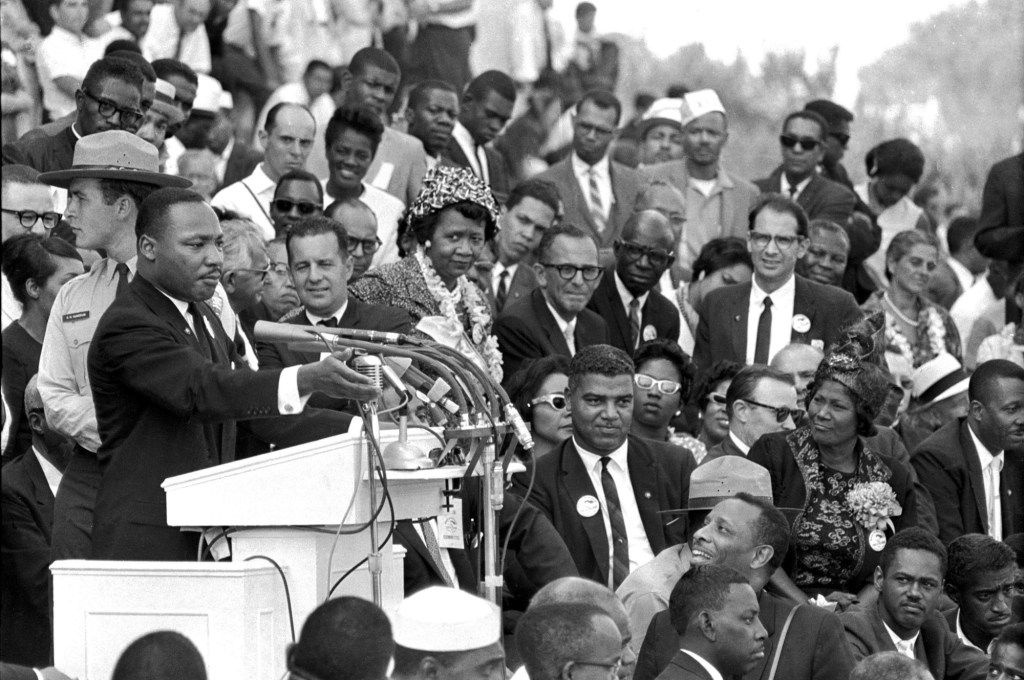Virginia
Commentary: My journey with civil rights


“Every great cause begins as a movement, becomes a business, and eventually degenerates into a racket.”
— Eric Hoffer
I was still a Republican at the time, but when Barack Obama gave his keynote address at the 2004 Democratic Convention, for the first time in my then 60 years I stood up from my chair, clapped my hands and applauded a political speech. I knew in that moment that I would vote for him if he ever ran for president.
I am thinking back on that speech because some of his more recent comments have caused me distress, particularly his denigration of minority Republicans such as Sen. Tim Scott and former North Carolina Gov. and U.N. Ambassador Nikki Haley for their claiming that people of color can make it in America, that their success stories are not unique and that they are not exceptional. That was not his message in 2004, and I replayed the entirety of that speech on YouTube recently just to make sure.
Neither was that his message to the graduates of Morehouse College in 2013 when he told them, “We’ve got no time for excuses — not because the bitter legacies of slavery and segregation have vanished entirely; they haven’t. … Racism and discrimination are still out there,” but “whatever hardships you may experience because of your race, they pale in comparison to the hardships previous generations endured — and overcame.” It was a message that encouraged taking individual responsibility for one’s outcomes in life and not looking for demons high and far away.
The president’s remarks at Morehouse were panned by some for an alleged lack of race consciousness. The speech, apparently, was too short on grievance. Other Black voices, to include Virginia’s Lt. Gov. Winsome Sears and many others, have received the same condemnation for focusing on stories of success and overcoming rather than insisting on a legacy of victimhood. But which story would be of greater inspiration for Black youth? Obama got it right the first time: Acknowledge the past, but take advantage of your freedom. The proud legacy is in the overcoming.
I enlisted in the Civil Rights Movement as a freshman at Penn State in 1962 and have never left it. My first teaching job was in an all-Black public school in Philadelphia in 1966 where they were desperate for teachers. After a stint in the Army followed by graduate school, I started teaching economics and American government in State College, Pennsylvania, and my seniors didn’t get out of my classes without learning about Brown v. Board, Dr. King’s “I Have a Dream” speech and his “Letter from Birmingham City Jail”. Later, after leaving teaching in the public schools, my wife and I created and endowed a scholarship in Penn State’s College of Education that would be awarded every year to students who committed themselves to teaching in one of America’s inner-city schools, and it has been awarded to minority students most of the time. I wrote newspaper columns in support of affirmative action, and our scholarship was a manifestation of that belief.
But now I find myself recalling, uncomfortably, the words of Eric Hoffer. I have not left the Civil Rights Movement, but parts of it have left me. It turns out that the perpetual claims of “systemic racism” and “Jim Crow 2.0” are good business, and every racial incident, real or imagined, becomes grist for the mill. Millions of books have been sold, hundreds of thousands of jobs have been created, and all to promote DEI (diversity, equity and inclusion) initiatives and programs in the name of anti-racism. Ibram X. Kendi, who associates racism with capitalism and who claims that the only remedy to past discrimination is present and future discrimination, has called for the creation and permanent funding of a federal Department of Antiracism. Robin DiAngelo continues to publish books in line with her widely read “White Fragility” to include versions for children.
In 2003, Supreme Court Justice Sandra Day O’Connor, in support of a case protecting affirmative action, Grutter v. Bollinger, said that in 25 years, it would no longer be necessary. She later said it might take a little longer. But instead of gradually extinguishing, the demands for preferential treatment have only accelerated. Bill Maher has described this as “progressophobia,” the denial that progress has been made. He got that exactly right, and the result will be an acceleration of divisiveness, resentment and polarization in our country that will provide little lasting benefit for everyday Americans of all races while opening the door to opportunists, and the work of the nation’s genuine racial healers will be made all the more difficult.
Joseph Filko has taught economics and American government and lives in Williamsburg. He can be reached at jfilko1944@gmail.com.












You must be logged in to post a comment Login